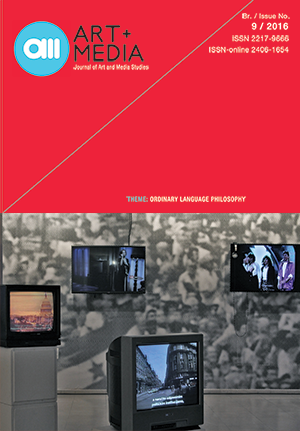Indirect Communication as a Language-Game: Kierkegaard Through a Late-Wittgensteinian Lens
Indirect Communication as a Language-Game: Kierkegaard Through a Late-Wittgensteinian Lens
Author(s): Bojan BlagojevicSubject(s): German Idealism, Analytic Philosophy
Published by: Fakultet za medije i komunikacije - Univerzitet Singidunum
Keywords: Wittgenstein; Kierkegaard; indirect communication; language-game; life forms
Summary/Abstract: Kierkegaard’s influence on Wittgenstein is widely recognized, but is most commonly treated in terms of (shared or opposed) views on religion, philosophy, ethics or non-sense. This paper will attempt to interpret Kierkegaard’s writing strategy known as ‘indirect communication’ in terms not of the Tractatus, but of Philosophical Investigations, namely as a language-game of sorts. We will attempt to show the deficiencies of Cavell’s and Conant’s interpretations and, by placing the concept of such communication in context, referring it to similar concepts, such as Socratic irony, we will aim to sketch its grammar and its relation to the ‘ordinary’ direct communication. Further, we will argue that indirect communication, pertaining to Kierkegaard’s concept of subjective truth, avoids the charge of being a private language.
Journal: AM Časopis za studije umetnosti i medija
- Issue Year: 2016
- Issue No: 09
- Page Range: 24-32
- Page Count: 10
- Language: English

